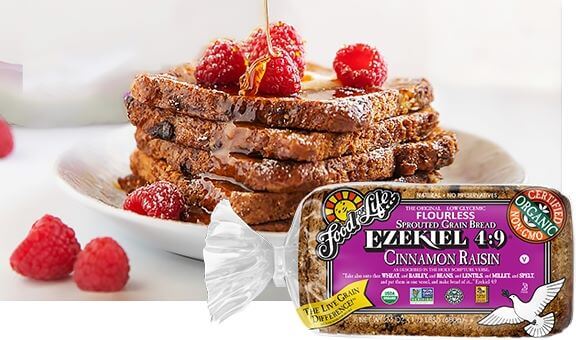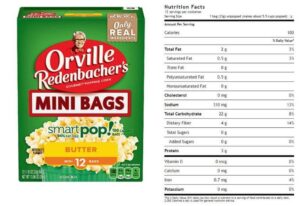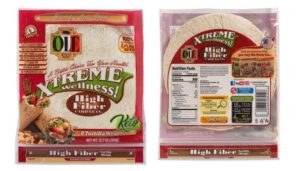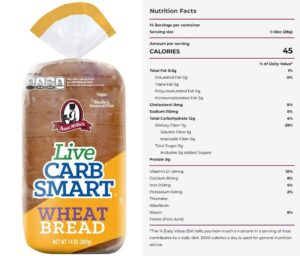5 min read, 827 words
Ezekiel 4:9® Cinnamon Raisin Sprouted Whole Grain Bread
Bread often gets a bad rap when it comes to healthy eating, with many people believing they have to give it up entirely to maintain a balanced diet. But the truth is, you don’t have to say goodbye to your favorite loaf! The key is choosing the right kind of bread. Instead of cutting it out, we can focus on picking healthier, more nutritious options that still satisfy your cravings without compromising your health goals. Let’s dive into how simple swaps can make a big difference in your daily bread routine!
Let’s take Ezekiel 4:9 Cinnamon Raisin for instance. Most people would think this is not an option when trying to lose weight or eat healthy.
Why this bread:
✔ High Fiber – Each slice has 2g of fiber
✔ Sprouted Grains – See below
✔ Vegan – No animal-derived ingredients
✔ Non-GMO – No genetically modified ingredients
✔ Flourless – Supposed to reduce the insulin response
✔ USDA Organic – No pesticides or synthetic fertilizers
✔ Kosher – KOF-K Kosher Certification
✔ Non-Glyphosate – Herbicide Free
✔ Decent Protein Level – 20% Protein by Calorie, 4g per slice
✔ Diabetic Friendly – Glycemic Index: 43
✔ No Added Sugar – The only sugar is from the raisins
✔ SQF – The Safe Quality Food (SQF) Program
What’s the Deal with Sprouted Grains?
Sprouted grains, including those used in sprouted grain breads, have a variety of benefits that make them a popular choice for health-conscious individuals. Here are some of the key advantages:
1. Easier to Digest
- Breakdown of starches: The sprouting process begins the breakdown of starches into simpler sugars, making sprouted grains easier to digest than non-sprouted grains.
- Reduced gluten content: While not gluten-free, sprouted grains may have lower gluten content, which can make them easier to tolerate for some people with mild gluten sensitivities.
2. Higher Nutritional Value
- More vitamins and minerals: Sprouting increases the levels of essential vitamins and minerals like B vitamins, folate, vitamin C, and magnesium, which can be less available in unsprouted grains.
- Increased antioxidant content: Sprouted grains tend to have higher levels of antioxidants, which can help combat oxidative stress and inflammation.
3. Better Absorption of Nutrients
- Reduction of phytic acid: Grains contain phytic acid, an anti-nutrient that can bind to minerals and prevent their absorption. Sprouting reduces the levels of phytic acid, making minerals like iron, zinc, and calcium more bioavailable.
- Higher fiber content: Sprouted grains tend to have more fiber than their unsprouted counterparts, which can aid digestion, support healthy blood sugar levels, and improve heart health.
4. Improved Blood Sugar Control
- Lower glycemic index: Sprouted grains generally have a lower glycemic index compared to non-sprouted grains. This means they cause a slower and more controlled rise in blood sugar, which is beneficial for managing diabetes or maintaining stable energy levels. This particular bread is advertised with a Glycemic Index of 43.
5. Increased Protein Content
- Higher protein availability: The sprouting process increases the protein content and the digestibility of the proteins in the grains, making them a better source of plant-based protein.
6. Better Flavor and Texture
- Nutty, slightly sweet taste: Sprouted grain bread has a distinct, richer flavor that many people find more enjoyable. The sprouting process also contributes to a softer and chewier texture, making it more appealing than traditional breads.
7. More Sustainable and Nutritious Choice
- Fewer additives: Many sprouted grain breads are made with fewer ingredients and fewer preservatives. This can make them a cleaner, more natural option for those looking to minimize their intake of processed foods.
8. Potential Gut Health Benefits
- Prebiotics: Some sprouted grains contain prebiotics, which are fibers that support the growth of healthy gut bacteria, contributing to improved digestion and immune function.
Overall, sprouted grain breads can offer a more nutrient-dense, digestible, and health-supporting alternative to traditional breads made with refined grains.
Each slice of Ezekiel Cinnamon Raisin contains:

Where to find this bread
You can find Ezekiel Cinnamon Raisin in the frozen food section. Since this bread is made without preservatives it is best kept in the refrigerator after thawing. I find it lasts about 10 days or so in my fridge.
How I use it
I like to lightly toast this for breakfast, with about 3-4 grams of whipped butter per slice. When paired with a source of protein (e.g. high-protein yogurt, or eggs) and some fresh fruit, all together, this makes a quick, nutritious morning breakfast. Don’t over-toast it or you’ll find it very dry.
This is a frequent go-to for me as part of a “I need to get out the door quickly” breakfast. Two slices of Cinnamon Raisin bread, lightly toasted and topped with about 7 grams of whipped butter, along with a protein shake and a piece of fruit makes for a quick, fairly balanced, protein rich, breakfast.
– Coach Ken 🚀







